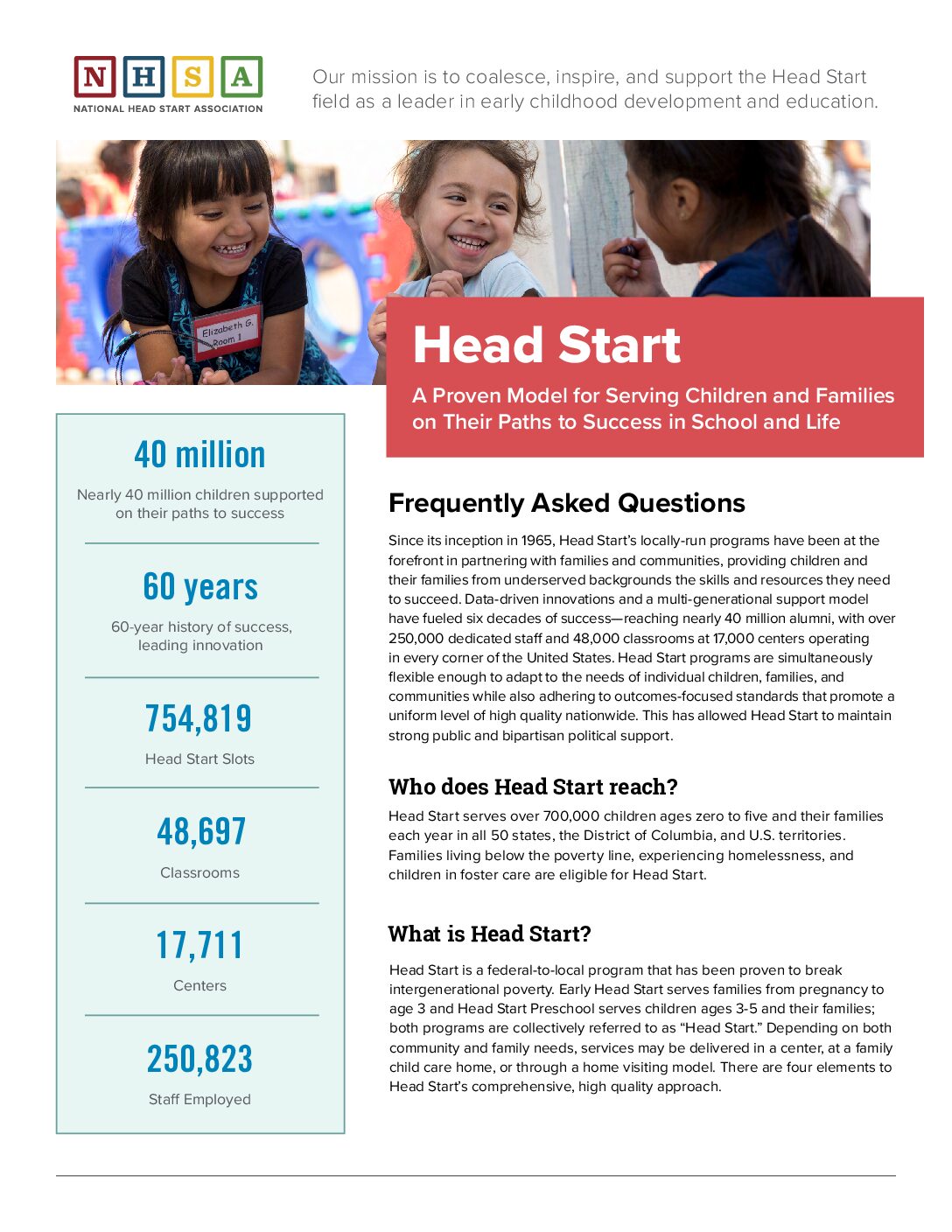Download the Head Start and Early Head Start overview for more information about Head Start services and comprehensive approach
Since 1965, Head Start’s locally-run programs have been at the forefront in partnering with families and communities to give young children and their families from at-risk backgrounds the skills they need to succeed in school and in life. From early math and reading skills, to confidence and resilience, Head Start helps children build the skills they need to be successful in school and life. Head Start takes a comprehensive approach to meeting the needs of young children and their families.
Depending on both community and family needs, Head Start services may be delivered in a center, at a family child care home, or as a home visiting model. Regardless of the model, there are five high-quality elements that are the essential to Head Start. Here’s the overview:
Education: Leaning on decades of brain science, Head Start staff work with children to build the brain connections and self-confidence necessary for success in kindergarten and beyond.
Health: Providing dental, health, and mental health services and referrals, as well as healthy eating based on current nutritional best practices, and early identification of health problems, Head Start addresses critical health and nutrition needs so that children are fully ready to learn and grow.
Parent Engagement and Support: Believing that parents are a child’s first and most important teachers, Head Start requires parent involvement in major program decision-making. Further, Head Start works with parents to put them on a path of economic self-reliance through goal setting, parenting training, and genuine engagement, enabling parents to join the workforce and stay working.
Local Design: Acknowledging that each community has different strengths, resources, and challenges, each program is designed to reflect the traditions, priorities, and cultures of the community.

